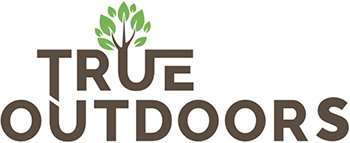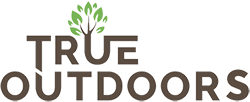True Outdoors Blog
Recent Posts
We invite you to monitor our News Blog for informative articles.
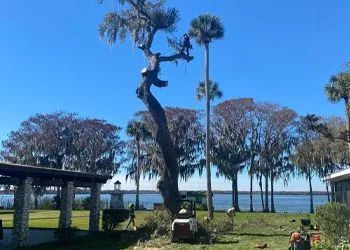
When managing a commercial property, safety is always a top priority. Trees can add beauty to your grounds, but they can also create hazards if not properly cared for. Professional arborists specialize in tree health and maintenance, and their expertise is invaluable in reducing risks for tenants, customers, and employees. At True Outdoors, we provide expert commercial property tree services in the greater Deltona, FL area. Here are four ways an arborist can improve safety on your commercial property. Identify Hazardous Trees Not all tree hazards are obvious to the untrained eye. An arborist can inspect trees for signs of internal decay, root instability, or structural weaknesses that could cause branches or entire trees to fall. By identifying these hazards early, you can prevent accidents that may result in property damage or injuries. Prevent Storm-Related Risks Storms can cause branches to snap or weak trees to topple, posing a serious threat to vehicles, buildings, and people. An arborist can trim back overhanging limbs, remove deadwood, and reinforce the structural integrity of trees before storms hit. Proactive care greatly reduces the likelihood of falling debris during high winds or heavy rain. Maintain Clear Walkways and Parking Areas Overgrown branches and low-hanging limbs can create obstacles in walkways and parking lots. These not only make the property look poorly maintained, but can also create tripping hazards. An arborist can ensure that branches are trimmed back, sightlines for drivers remain clear, and customers and employees can move around safely without obstruction. Safe Tree Removal When Necessary Sometimes, the best way to ensure safety is to remove a tree altogether. Whether due to storm damage, disease, or encroaching roots that threaten infrastructure, an arborist can safely remove trees without risking damage to nearby structures. Professional removal ensures the process is handled correctly and with minimal disruption to your business operations. Commercial Arborist Services in Deltona, FL At True Outdoors, we provide top-quality tree services in Deltona and the surrounding area. Our local arborists provide expertise with both commercial and residential tree care. Give us a call at 386-242-9035 to ask for an arborist estimate in greater Deltona, FL!
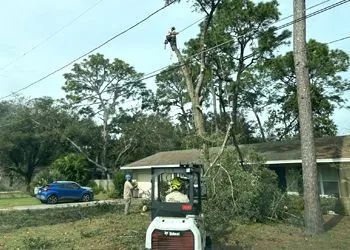
Dead trees may not seem like an urgent issue, especially if they’ve been standing quietly on your property for some time. However, failing to remove them can lead to serious risks. From safety concerns to curb appeal issues, the presence of a dead tree shouldn’t be overlooked. Acting quickly to have it professionally removed can save you from costly problems in the future. At True Outdoors, our local arborists provide expert dead tree removal in the greater Deltona area. Here’s a look at four reasons to remove dead trees ASAP. They Pose a Safety Hazard One of the biggest dangers of a dead tree is its instability. Without healthy roots and living wood, the structure of the tree becomes brittle and weak. Strong winds, storms, or even gradual decay can cause large branches—or the entire tree—to collapse unexpectedly. This can endanger people nearby, making prompt removal an essential step in keeping you and your family safe. They Can Damage Your Property When a dead tree or its limbs fall, the damage can be significant. A heavy branch crashing down on your roof, fence, or driveway could result in expensive repairs. If the tree is close to power lines, it could also cause outages or dangerous electrical hazards. By addressing the issue early, you prevent the risk of property damage and the financial burden that comes with it. They Attract Pests Dead wood is a magnet for pests such as termites, carpenter ants, and beetles. These insects use the decaying tree as food and shelter, but they don’t always stay confined to the tree. Over time, they can spread to nearby plants, other trees, or even your home’s wooden structure. Removing dead trees quickly helps protect your landscape and house from costly infestations. They Hurt Your Property’s Curb Appeal Curb appeal is an important aspect of any property, and a dead tree can be an eyesore that drags down the overall look of your yard. Its bare branches, peeling bark, and decayed appearance stand out negatively, especially in a well-kept landscape. Removing it not only eliminates the eyesore, but also opens up space for healthier plants or new landscaping features. Tree Removal in Deltona, FL At True Outdoors, we provide expert tree removal in Deltona, FL and the surrounding area. Give us a call at 386-242-9035 to arrange a tree services estimate in greater Deltona, FL!
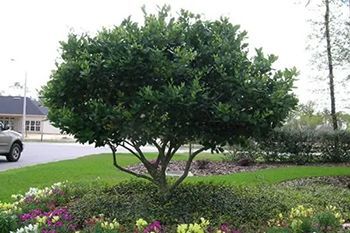
When it comes to making a great first impression, your landscape plays a major role. Healthy, well-maintained trees can significantly enhance your home’s curb appeal, creating a polished and inviting look. An ISA-certified arborist is trained and qualified to care for trees with expertise, helping to ensure that they contribute beautifully to your property’s appearance. At True Outdoors, we provide ISA-certified tree care services in the greater Deltona, FL area. Whether you’re preparing to sell your home or simply want to make your yard look its best, a certified arborist can help optimize your property’s curb appeal. Professional Tree Pruning for a Clean, Attractive Look Pruning isn’t just about removing dead branches—it’s an art and a science. An ISA-certified arborist understands how to shape trees to complement the structure of your home and the layout of your yard. This may include removing overgrowth, correcting lopsided crowns, and enhancing the natural symmetry of your trees. This type of strategic pruning improves aesthetics while also encouraging healthy growth. Removal of Hazardous/Undesirable Trees Sometimes, a tree is beyond saving or simply doesn’t belong in its current location. Dead, dying, or poorly placed trees can make your yard look neglected and can even pose safety risks. An arborist can identify which trees are damaging your property’s appearance or endangering your home. Removing these trees opens up space for sunlight, reveals better sightlines, and allows more attractive plantings to thrive. Ongoing Health Care for Vibrant, Lush Trees Tree health is key to appearance. Discolored leaves, stunted growth, and pest infestations all make trees look unattractive. A certified arborist can provide solutions and preventive care to keep your trees looking lush and full. Their expert knowledge of tree care helps ensure that your trees stay healthy and continue to enhance the beauty of your property. Storm Damage Prevention and Cleanup Broken limbs and fallen branches after a storm can quickly ruin your landscape’s appearance. An arborist can both prepare your trees to better withstand severe weather and provide swift, professional cleanup after storms hit. By removing vulnerable limbs and performing necessary maintenance, they reduce the risk of damage and keep your property looking tidy and cared for, even in tough conditions. ISA-Certified Arborist in Deltona, FL At True Outdoors, we provide expert tree services in Deltona, FL and the surrounding area. Give us a call at 386-242-9035 to arrange a tree care estimate in greater Deltona, FL!

